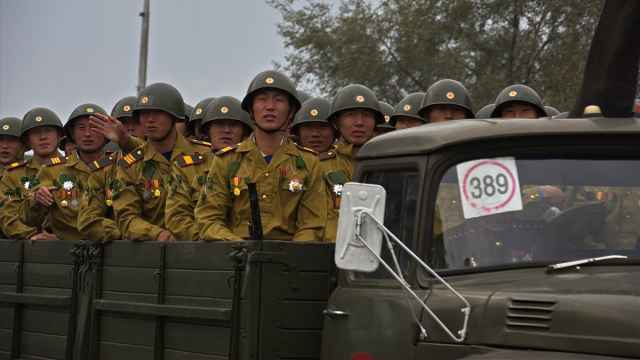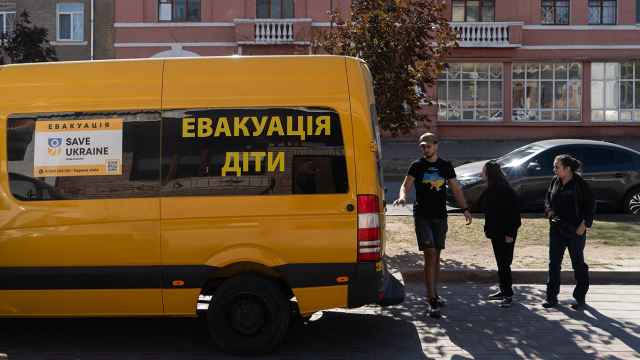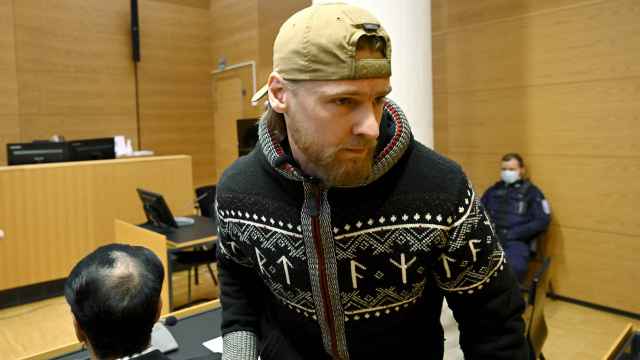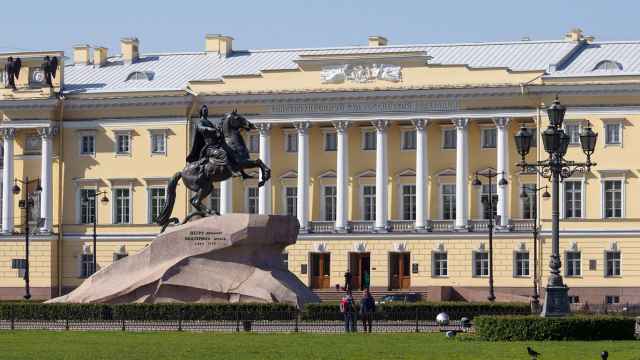Three men pleaded guilty to having used their positions in the Interior Ministry's anti-corruption department to ensnare unsuspecting officials and businesspeople into elaborate bribery schemes, Kommersant reported Tuesday.
The defendants include Alexei Klyushkin and Alexander Leonov, both of whom reportedly worked as undercover agents for Moscow's anti-corruption department starting in 2013, and businessman Sergei Laskin. All three pleaded guilty to charges of collusion to abuse office, and petitioned for exemption from a formal trial.
The Investigative Committee and the General Prosecutor's Office have already agreed to these conditions, according to the report. Each suspect faces up to 10 years in prison.
The three men were involved in a series of what the anti-corruption department described as "experiments." They would pose as businessmen and entrepreneurs and offer bribes to other businessmen, according to Kommersant. When those businessmen accepted the bribes, they were placed in handcuffs and arrested.
Rather than viewing the method as a creative means of scouting out criminals, the Investigative Committee saw it as entrapment.
One of the trio's victims was Olga Zhdanova, the acting head of the Federal Registration Service. In June 2013, Klyushkin reportedly offered to give Zhdanova more than 1 million rubles ($29,000) to expedite the registration of the ownership of a land plot in the Moscow suburbs.
The deal was made through an intermediary, but when Zhdanova agreed to take the money she was arrested by the anti-corruption department.
Following the incident, investigators said Klyushkin had knowingly tried to prosecute an innocent individual.
Laskin and Leonov participated in similar "experiments" with other officials and businessmen in 2013.
All three men were reportedly acting under the leadership of Major General Boris Kolesnikov, the former deputy head of Moscow's anti-corruption department who fell several stories to his death while being interrogated in June. Kolesnikov was under investigation by the Investigative Committee on suspicion of abuse of office.
Some analysts view the mysterious circumstances surrounding Kolesnikov's death as an indication of a broader internal power struggle within Russia's security services.
"It could, of course, be that Kolesnikov was a guilty man who took a quick and dramatic way out rather than face the disgrace of a trial and a lengthy prison sentence, accompanied by all the additional risks and pressures that a former cop would face behind bars … But Kolesnikov's death also neatly closes the case against him without risking him naming names or rebutting charges in open court,'' analyst Mark Galeotti wrote in an op-ed for The Moscow Times in June.
The three guilty pleas are the latest development in an ongoing inter-agency saga that has seen 11 of Moscow's anti-corruption department agents arrested on the orders of officials from the Federal Security Service and the Investigative Committee on suspicion of abuse of office and corruption since mid-2013.
See also:
A Message from The Moscow Times:
Dear readers,
We are facing unprecedented challenges. Russia's Prosecutor General's Office has designated The Moscow Times as an "undesirable" organization, criminalizing our work and putting our staff at risk of prosecution. This follows our earlier unjust labeling as a "foreign agent."
These actions are direct attempts to silence independent journalism in Russia. The authorities claim our work "discredits the decisions of the Russian leadership." We see things differently: we strive to provide accurate, unbiased reporting on Russia.
We, the journalists of The Moscow Times, refuse to be silenced. But to continue our work, we need your help.
Your support, no matter how small, makes a world of difference. If you can, please support us monthly starting from just $2. It's quick to set up, and every contribution makes a significant impact.
By supporting The Moscow Times, you're defending open, independent journalism in the face of repression. Thank you for standing with us.
Remind me later.





